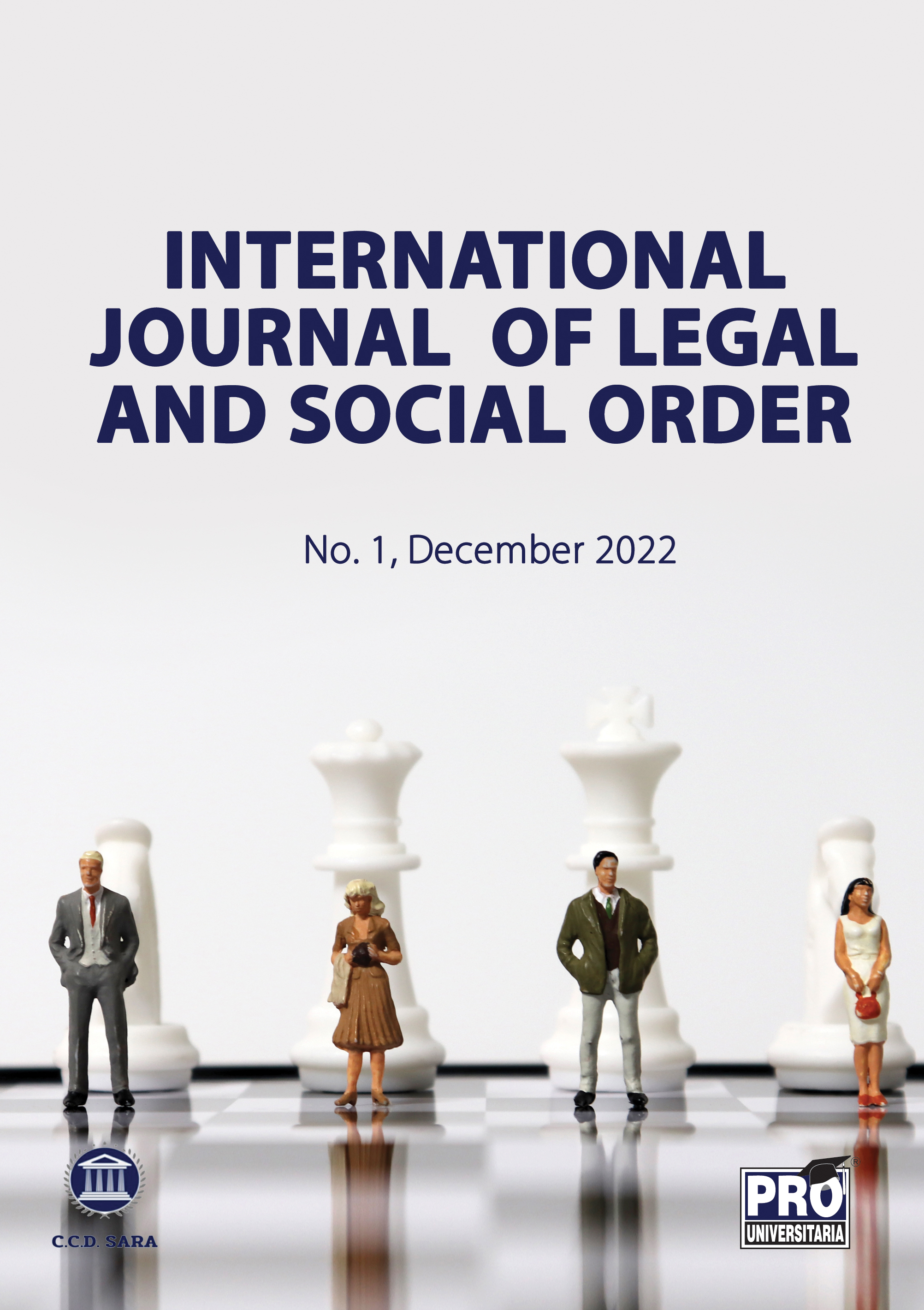CONSIDERATIONS REGARDING THE LIMITS AND EFFECTS OF THE RECOGNITION OF A FOREIGN JUDGMENT
DOI:
https://doi.org/10.55516/ijlso.v1i1.82Keywords:
member states; judicial cooperation; appropriate legal mechanisms;Abstract
In this article we aimed to analyze from a theoretical and practical point of view the limits and effects of the recognition of a foreign court decision in criminal matters, in relation to the existing regulations in European and national legislation. The establishment at European level of an area of freedom, security and justice through the provisions of art. 67 of the Treaty on the Functioning of the European Union (TFEU), imposed a new approach to the entire issue of judicial cooperation in criminal matters. The research undertaken aims to highlight the interest of the European legislator, but also the national one in this segment, as well as the existing regulatory limits, with consequences in judicial practice, but also the need for the intervention of the Union legislator to give full and complete efficiency to the principle of mutual recognition of decisions foreign judicial orders pronounced by the judicial authorities of the member states.
References
Treatises, monographs
G.Bodoroncea, V.Cioclei, I.Kuglay, L.V.Lefterache, T.Manea, I.Nedelcu, F.M.Vasile, G.Zlati, Criminal Code. Comments on articles, ed. 3-A, Ed. C.H. Beck, Bucharest, 2020;
P.Craig, G. de Burca, Department of the European Union. Commentaries, jurisprudence and doctrine, 6th Ed., Ed. Hamangiu, Bucharest, 2017;
Flore, D., and Bosly, S., Droit pénal européen, 2nd Ed., Larcier, Brussels, 2014;
M. Pătrăuș, International judicial cooperation in criminal matters. Compendium. Legislation, doctrine, European and national jurisprudence, Ed. UJ, Bucharest, 2021;
Legislation
The Treaty of Lisbon signed on December 13, 2007, entered into force on December 1, 2009 includes the Treaty on the European Union and the Treaty on the Functioning of the European Union, publ. in OJ EU C 306 of December 17, 2007, available on the website: https://eur-lex.europa.eu/legal content/RO/TXT/HTML/?uri=OJ:C:2007:306:FULL&from=RO;
Framework Decision 2008/909/JAI, amended, on the application of the principle of mutual recognition in criminal matters that impose penalties or custodial measures for the purpose of their execution in the European Union, adopted by the Council on November 7, 2008, publ. in OJ EU L 327 of December 5, 2008, amended by art. 5 of the Council's Framework Decision 20009/299/JAI of February 6, 2009 amending the Framework Decisions 2002/584/JAI, 2005/214/JAI, 2006/783/JAI, 2008/909/JAI and 2008/947 /JAI, to strengthen the procedural rights of individuals and to encourage the application of the principle of mutual recognition regarding decisions rendered in the absence of the person concerned from the trial, publ. in OJ EU L 294 of March 27, 2009;
Program of measures to implement the principle of mutual recognition of judicial decisions in criminal matters of the Council adopted in Tampere, 15-16 October 1999: https://www.consilium.europa.eu/media/21059/tampere-european-council-presidency-conclusions.pdf;
Law no. 302/2004 on international judicial cooperation in criminal matters, publ. in M.Of., Part I, no. 411 of May 27, 2019, republished by Law no. 51/2021, publ. in M.Of., Part I, no. 310 of March 26, 2021;
Jurisprudence
Timiș Court, criminal section, sent. pen. no. 429/PI pronounced in file no. 8818/30/2011, unpublished;
Judgment of 29 June 2017, Poplawski, C-5 79/15, EU: C:2017:503, point 22;
Judgment of December 13, 2018, Sut, C-514/17, EU:C:2018:1016, point 37.
Downloads
Published
How to Cite
Issue
Section
License
Copyright (c) 2022 International Journal of Legal and Social Order

This work is licensed under a Creative Commons Attribution-NonCommercial 4.0 International License.


